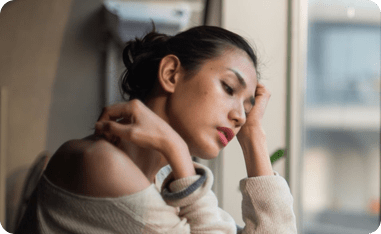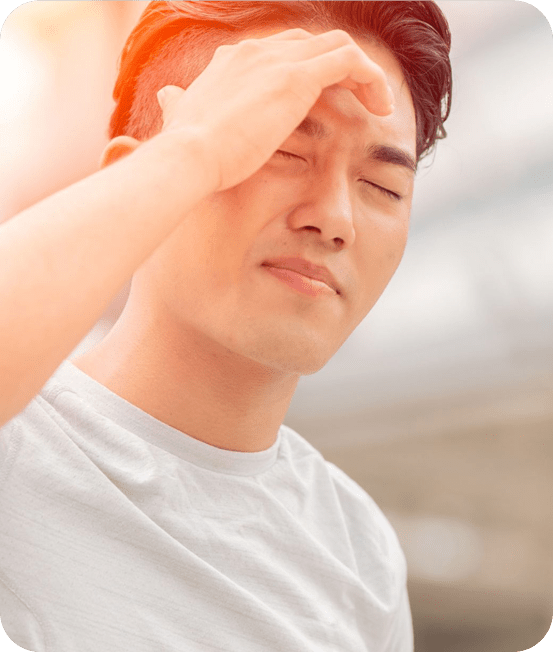
Private Benzo Detox & Residential Treatment
Someone with benzodiazepine use disorder who decides to enter recovery must first complete the detox process. Acute or even life-threatening withdrawal symptoms may emerge during benzodiazepine detox, requiring a doctor to oversee a medical detox.
If you or someone you know is struggling with benzo addiction, call Pacific Bay Recovery at 619-350-8220.
What Are Benzodiazepines?
Benzodiazepines (benzos) are a class of sedatives that act as central nervous system depressants. Benzos are prescribed to treat patients who struggle with anxiety disorder, insomnia, epileptic seizures, alcohol withdrawal, and restless leg syndrome.
Although there are fifteen types of benzos on the market, these are the most commonly prescribed:
- Xanax (alprazolam)
- Ativan (lorazepam)
- Valium (diazepam)
- Klonopin (clonazepam)
Benzos are classified by the DEA as Schedule IV drugs, meaning they have a high potential for abuse and addiction. For this reason, they are intended for short-term use only.
Call Pacific Bay Recovery now at 619-350-8220 to learn more about our Benzodiazepine detox and residential at our private location.

Benzodiazepines And The Brain

Benzodiazepines and The Brain
Xanax, Valium, or any benzodiazepine produces fast-acting sedating effects. Benzos induce a sense of calm and deep relaxation by attaching to the GABA-A receptors in the brain. This causes neural activity in the brain to slow, resulting in reduced heart rate and blood pressure

Benzodiazepine Dependency
Taking benzos for a long duration, or taking a higher dosage than prescribed, can quickly result in increased tolerance. As the brain becomes used to the presence of the benzo, it makes adaptations in dopamine production. Over time, the person finds it harder to cut back or quit taking the benzos without having severe withdrawal symptoms.
You can overcome benzodiazepine dependence with the right support. Call Pacific Bay Recovery at 619-350-8220
Signs of Benzodiazepine Addiction
Benzo addiction can develop in a matter of weeks, which results in a compulsion to keep taking the drug. Benzos are highly habit forming. With continued daily use, the person starts to anticipate a need for the drug, even before having any symptoms.
Signs of a benzo addiction include:
- Being obsessed with having enough of the drug on hand.
- Looking forward to the next benzo dose.
- Seeking out other sources to acquire benzos, such as doctor shopping or buying through illicit sources.
- Decreased desire for sex.
- Withdrawing socially.
- Over sleeping.
- Impaired memory.
- Lying about your benzo use.
- Irritability
- Agitation
- Mood swings.
- Forgetfulness
- Feelings of apathy.
- Trying to cut back on or quit taking benzos but can’t.
- Having withdrawal symptoms when the drug wears off.


Risks of Benzodiazepine Use
As with any medication, it is good to be aware of the possible short or long-term risks of taking benzos. These might include:
- Cognitive impairment. Studies have shown that long-term benzo use can cause cognitive decline that does not resolve, even after stopping the drug.
- Accidental injuries. These sedatives slow nerve activity in the central nervous system, causing a loss of motor coordination and slower reaction times. This can increase the risk of falls and accidents.
- Dependency or addiction. Benzos are highly addictive drugs, so prolonged use puts the person at risk of developing a substance use disorder.
- Risk of overdose. Some people may misuse the benzos, or combine them with alcohol or other substances. This may slow the central nervous system so much that respiratory failure results.
Don’t put your life or your long-term health at risk. Call us today at 619-350-8220.
Symptoms of Benzodiazepine Overdose
A benzo overdose occurs when acute toxicity overwhelms the system, possibly leading to death. An overdose may happen when the benzos are taken in combination with alcohol, other sedatives, or opioids. It may also occur when the pills are crushed and then snorted or injected, or chewed, which overpowers the system.
Benzo overdose symptoms include:
- Mental confusion.
- Extreme drowsiness.
- Difficulty breathing.
- Fainting
- Loss of balance.
- Muscle weakness.
- Coma
An overdose is an event that requires emergency medical attention. After assessing the status, the doctor may decide to pump the stomach, known as gastric lavage. This prevents any more of the benzo from being absorbed and entering the bloodstream. Other interventions may include fluids delivered through an IV line and use of a drug called flumazenil.


Residential Benzodiazepine Detox and Withdrawal
It is advised that a Benzodiazepine detox and withdrawal be completed while under the care of a doctor and a skilled detox team. The safest way to detox from benzos is through a tapering schedule, versus stopping the drug cold turkey.
A doctor creates a detox plan that involves stepping down the benzo dosing over a period of 2-4 weeks. This approach allows the body to gradually adjust to the smaller doses over time, which greatly reduces withdrawal discomfort.
The severity of the symptoms depends on various factors. These include the history of the benzo addiction, the daily dosage, the delivery method, and a poly-substance addiction. During the detox process, the team provides medical interventions to ease benzo withdrawal symptoms.
Benzodiazepine withdrawal symptoms may include the following:
- Nausea, cramps, or vomiting.
- Agitation
- Diarrhea
- Panic attacks.
- Tremors
- Confusion and impaired cognitive function.
- Dizziness
- Irritability
- Profuse sweating.
- Blurred vision.
- Nausea
- Dry heaves.
- Muscle aches.
- Short-term memory impairment.
- Heart palpitations.
Pacific Bay Recovery for Benzodiazepine Rehabilitation
Following detox, an addiction treatment program helps guide the person toward making major changes in the way they cope with stress. Treatment addresses the underlying mental health disorder and the dysfunctional thought patterns that have kept the person dependent on benzos.
In rehab, a multi-pronged treatment plan will consist of the following elements:
- Psychotherapy. Psychotherapy, especially cognitive behavioral therapy, is central to changing addictive behaviors. A therapist helps the person identify any underlying emotional issues that could be contributing to the fear, worry, or anxiety.
- Group sessions. Meeting in small groups of peers allows members to share their experiences and discuss topics related to recovery.
- Education. Recovery skills are central to navigating life after a benzodiazepine detox. New coping strategies are introduced and practiced in treatment.
- 12-step program. The 12-step program provides benchmarks to further assist in the benzo recovery process.
- Holistic therapy. To aid in benzo recovery, it is important to learn how to relax without the drug. Activities like yoga, guided meditation, acupuncture, and massage are techniques that will be useful in recovery.
When a benzo use disorder has severely impacted your daily life, it is critical to take the first step: benzo detox.
Call our Benzodiazepine detox at Pacific Bay Recovery today at 619-350-8220 for more information.


